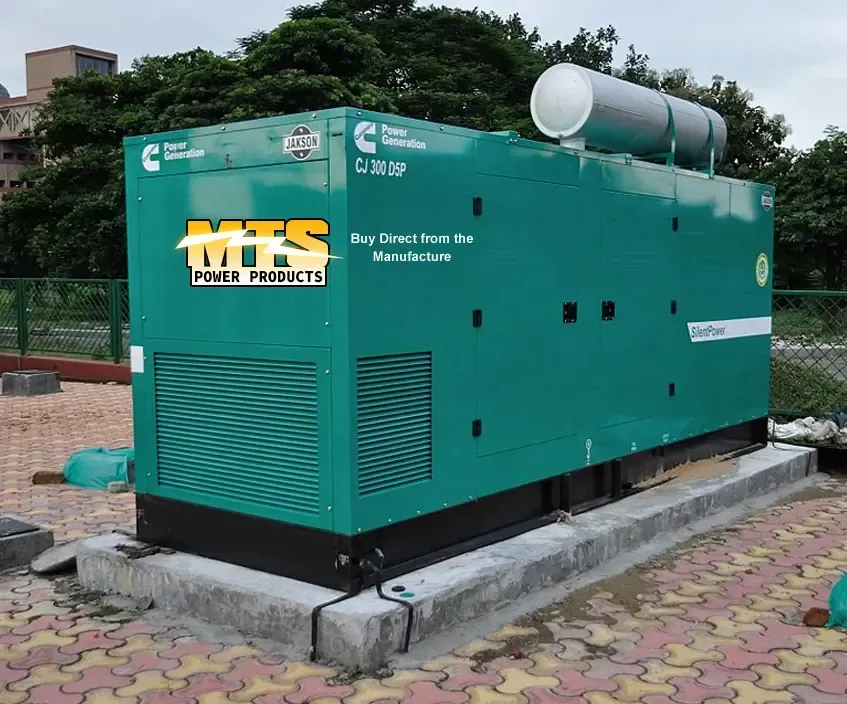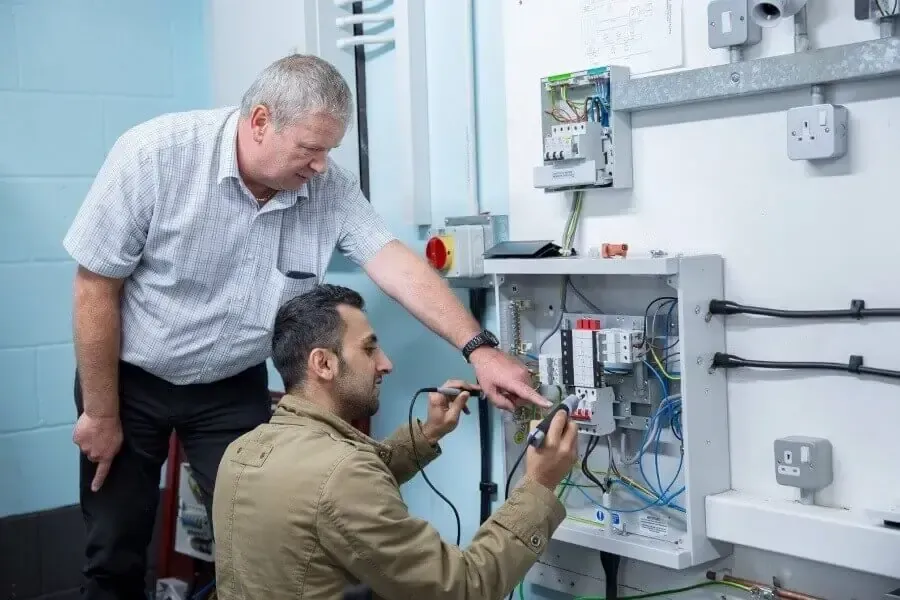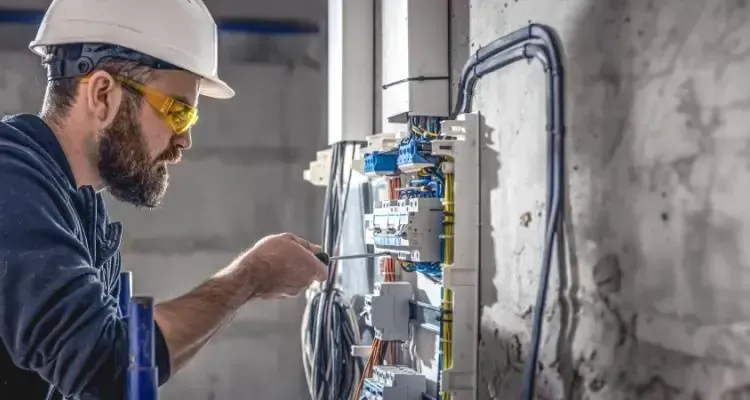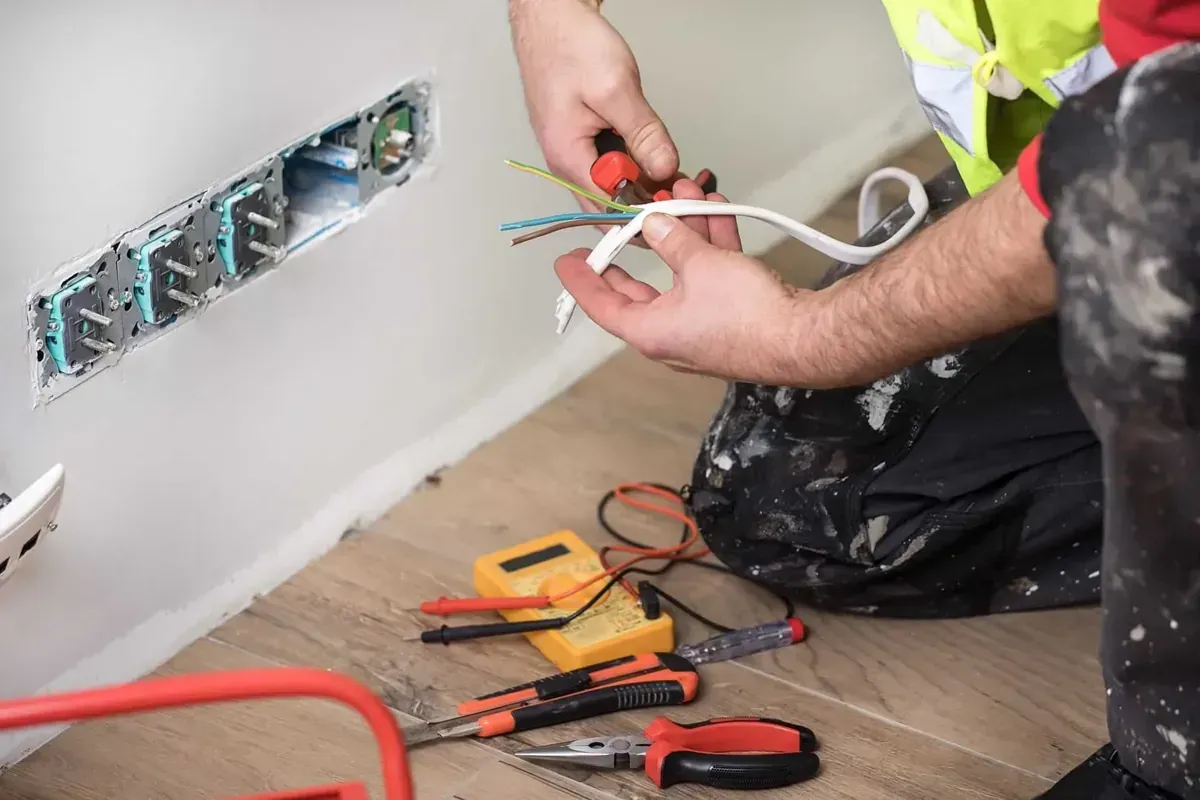Commercial Generators: A Comprehensive Guide for Business Power Solutions
Power outages don't care about your business schedule. They happen during lunch rushes, important meetings, and peak shopping hours. When electricity disappears, so does your ability to make money and serve customers.
The good news? You don't have to accept this risk. Backup generators give businesses the power to keep operating no matter what happens to the electrical grid.
Understanding Business Backup Power

A backup generator does exactly what its name suggests, it generates electricity when your regular power source fails. These machines create power independently, keeping your business alive during outages.
Think of generators like spare tires for your car. You hope you'll never need them, but when trouble strikes, you're incredibly glad they're there.
Business generators come in many sizes. Small ones power essential equipment like computers and lights. Large ones run entire buildings including heating, cooling, and heavy machinery. Your needs determine what size makes sense.
The Real Cost of Power Outages
Before talking about generators, let's understand what you're protecting against. Power outages hit businesses hard in ways many owners don't realize until it's too late.
Lost sales hurt immediately. Every minute your store stays dark, customers shop elsewhere. Restaurants throw away spoiled food. Manufacturing stops. Service businesses can't help clients.
Equipment damage adds up quickly. Computers crash and lose data. Machinery damaged by sudden power loss needs expensive repairs. Sensitive electronics fail from power surges when electricity returns.
Employee costs continue even when work stops. You still pay wages but get no productivity. Workers sitting idle still expect their paychecks. Reputation suffers too. Customers remember businesses that couldn't serve them. Competitors who stay open during outages win your clients.
Standby Generator Systems
Standby generators are the most common choice for businesses. They're permanent installations that live outside your building and watch your power constantly.
Here's what makes them special. They detect power loss within seconds. They start automatically, nobody needs to flip switches or press buttons. Within ten seconds, your business has power again. Many customers won't even notice the outage happened.
These systems connect to your building's electrical panel through a transfer switch. This smart device knows when to switch from utility power to generator power and back again.
Standby units typically run on natural gas from underground pipes or propane from storage tanks. This means they can operate for extended periods without refueling. Some businesses have run their generators for weeks during major disasters. In Throop, where weather can knock out power unexpectedly, having a standby generator means you're always ready for business.
Portable Power Solutions
Portable generators offer flexibility and lower initial costs. These wheeled units can move to wherever you need power most. Construction companies love portable generators because they move between job sites. Small businesses use them to power essential equipment during outages. Some companies keep portable units as backup for their standby systems.
However, portable generators have limitations. Someone must physically start them when power fails. They need manual refueling every few hours. They're typically louder than standby units. They work great for temporary or occasional needs but aren't ideal for businesses requiring automatic, continuous backup power.
Inverter Technology
Inverter generators represent newer technology that produces extremely clean, stable electricity. They're perfect for businesses with sensitive electronic equipment. Computer networks, medical devices, and modern point-of-sale systems need consistent power quality. Inverter generators provide that stability better than traditional models. They're also remarkably quiet. If you need backup power but can't have noisy equipment disturbing neighbors or customers, inverter technology solves that problem. The tradeoff is cost. Inverter generators typically cost more than traditional models of similar size. But for businesses dependent on electronics, that investment pays off.
Calculating Your Power Requirements
Choosing the right generator size prevents frustration and wasted money. Too small means not enough power for your needs. Too large means paying for capacity you'll never use.
Start by identifying critical equipment. What absolutely must keep running during an outage? Make a complete list including lights, computers, refrigeration, security systems, and anything else essential.
Each device has a power rating, usually found on a label. These ratings show watts or amps. Write down every number. Add up your total. Then add 25% more as a safety buffer. This extra capacity handles startup surges when motors kick on and prevents overloading. Professional electricians like those at Bee-lectric can perform detailed load calculations. They measure actual power draw and design systems that handle your exact needs perfectly.
Fuel System Choices
Natural Gas Advantages
Natural gas flows through underground utility lines directly to your generator. You never worry about running out of fuel. It's clean-burning and relatively inexpensive. Many Throop businesses prefer natural gas because it's simple and reliable. The downside? If your natural gas service fails during a disaster, your generator stops too. This rarely happens but is worth considering.
Propane Benefits
Propane stores on-site in large tanks. Your fuel supply stays independent from utility systems. Propane works in any weather and lasts indefinitely in storage. You'll need space for tanks and occasional refills from propane suppliers. Tank sizes range from small cylinders to massive permanent installations holding hundreds of gallons.
Diesel Reliability
Diesel fuel packs tremendous energy density. A little diesel produces lots of power. It stores safely and remains stable for months with proper additives. Large generators often use diesel because it's so efficient. Businesses needing serious power output typically choose diesel systems.
Professional Installation Essentials
Generator installation isn't a simple plug-and-play process. It requires expertise, planning, and proper execution.
First, professionals assess your property. Where should the generator sit? It needs level ground, adequate ventilation, and distance from windows and doors. Some areas have noise restrictions affecting placement.
Next comes the transfer switch installation. This critical component connects your generator to your building's electrical system safely. It prevents dangerous backfeeding that could harm utility workers or damage equipment.
Companies like Bee-lectric handle permits, inspections, and all technical details. Their experienced electricians ensures installations meet codes and work reliably when needed.
Keeping Your Generator Ready
Generators need regular maintenance to stay reliable. Neglected units fail exactly when you need them most.
Run your generator monthly under load for at least 30 minutes. This keeps oil circulating, charges the battery, and proves everything works. It also burns off moisture that causes corrosion.
Schedule professional service twice yearly. Technicians change oil, replace filters, test batteries, inspect connections, and verify proper operation. They catch small problems before they become big failures.
Keep detailed maintenance logs. Record every service, repair, and test run. These records help identify patterns and prove proper care for warranty claims.
Selecting Your Installation Partner
Choose carefully when picking a company to install your backup power system. This decision affects your protection for decades. Look for proper licensing and insurance. Verify they have commercial generator experience, not just residential work. Ask about manufacturer certifications and training. Request references from similar businesses. Visit their installations if possible. How long have their systems run reliably? Does the company respond quickly to service needs? Consider ongoing support too. Who maintains your generator after installation? What's their emergency response time? Quality companies offer comprehensive service agreements keeping your system ready.
Related Services We Provide
Commercial Electrical Upgrades
Older electrical systems may need upgrades to support generator installations. Modern panels distribute power efficiently and safely throughout your facility.
Automatic Transfer Switch Installation
Transfer switches are the brain of your backup power system. Professional installation ensures seamless switching between utility and generator power.
Emergency Power Planning
Comprehensive power audits identify your critical systems and design optimal backup solutions. Planning prevents problems and ensures adequate protection.
Generator Maintenance Programs
Scheduled maintenance keeps generators reliable. Professional service programs include testing, inspections, and repairs keeping your investment protected.
Taking Action Now
Don't wait until after an outage to think about backup power. Emergency installations cost more and limit your options. Planning ahead lets you choose the right system at the right price. Start by evaluating your actual needs. What must keep running during outages? How long do outages typically last in your area? What's your budget? Meet with experienced electrical contractors. They'll assess your facility, calculate power requirements, and recommend appropriate solutions. Get detailed proposals from multiple providers.
Consider your business growth plans too. Installing capacity for future expansion costs less than upgrading later. The best backup power decision is the one you make before you need it. When the next outage hits, you'll keep serving customers while competitors sit in the dark. That competitive advantage drives profits and builds customer loyalty worth far more than your generator investment.



